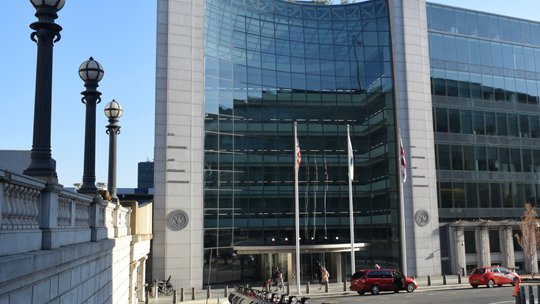
A terminology change in Washington, D.C., could cut the capital available to early-stage entrepreneurs by millions, if not billions. That's according to local investors in the Triangle who are worried about potential changes to the term “accredited investor,” and how it’s defined by federal regulators.
To back startups, investors must be accredited. It's criteria meant to make sure they have sufficient wealth to bear the consequences, should their investments go south. An accredited investor is required to have a net worth of more than $1 million excluding their primary residence.
But the definition could change, as the U.S. Securities and Exchange Commission has asked for a re-examination of how investors are accredited moving forward. Pat Gouhin, CEO of the Angel Capital Association, said that by legal statute, the SEC is required to review accreditation rules this year.
“We think it could appear again any day now,” he said of a proposed rule change. “If it is, we need to be ready with our defense and response.”
Gouhin said the economic impact of angel investing is significant enough that the SEC should think twice. One of ACA’s member groups, Desert Angels of Arizona, conducted a study that showed for every $100,000 invested, it led to 5.8 jobs and $2.1 million in economic impact.
“That was just in that one community in Arizona … and we’ve got that happening in 250 different places in the U.S.”
Mark Friedman, president of RTP Capital Associates, was in Washington with Gouhin last month to speak about the issue. He fears raising the threshold could screen out a chunk of the capital available for seed-stage investing.
If the threshold were to rise to just $3 million, “the estimates are that it would knock out half the angel investors in the country.” And that means less capital available to entrepreneurs, a “chilling effect,” he said.
What local investors are saying
Talk of moving the minimum net worth as high as $5 million has several Triangle investors worried about the impact on local startups.
John Cambier, a longtime early-stage technology investor and administrator of the recently-launched RTP Angel Fund, said "making such a large leap will almost certainly have a negative impact in the short-term.”
It’s a sentiment held by most investors Triangle Business Journal spoke with, including Scot Wingo, founder of the Tweener Fund, who said he would prefer the requirements to decrease.
“That would align more with the crowdfunding requirements at zero,” he said.
Elaine Bolle, a longtime angel investor and one of the co-founders of the RTP Angel Fund, said raising the threshold could filter out diverse investors. “Increasing the participation of underrepresented groups is essential to identifying a broader range of potential business opportunities," she said.
There are other options local angels have lobbied for in Washington.
Bolle said she would be in favor of expanding the current definition beyond financial measures, such as a requirement that investors demonstrate competency. And the Angel Capital Association provides several educational courses that could help investors increase their sophistication in order to comply, she said.
It's an option Friedman supports as well, noting that a high net worth doesn't automatically make for a sophisticated investor. He also wonders if there could be separate criteria for investors backing startups through an angel investment group that already has strict due diligence in place.
Gouhin said it's hard to say how seriously the SEC is considering raising the threshold, as there's been little clarity from the agency.
“They’re pretty tight lipped,” he said.